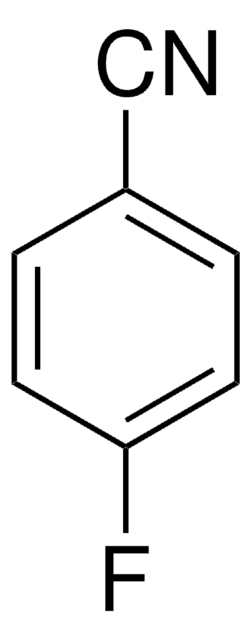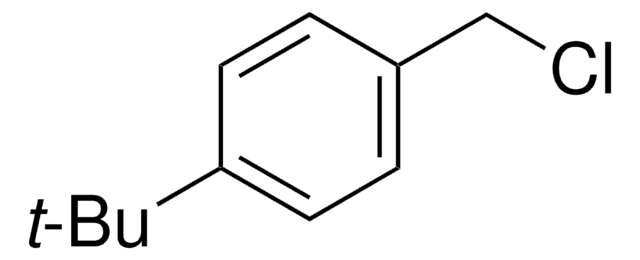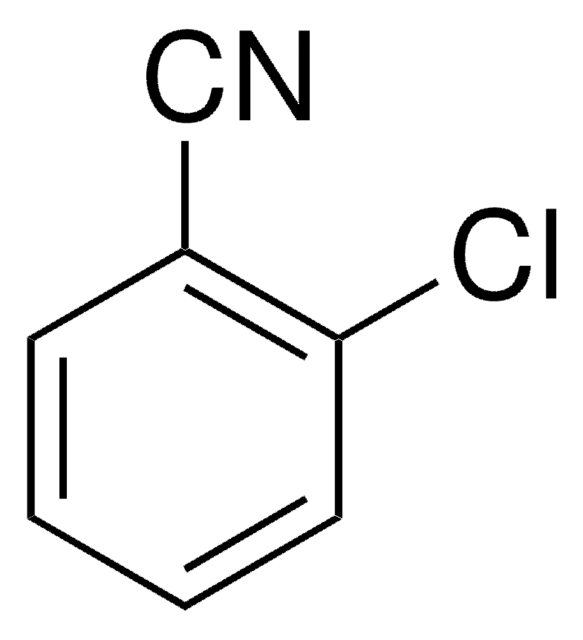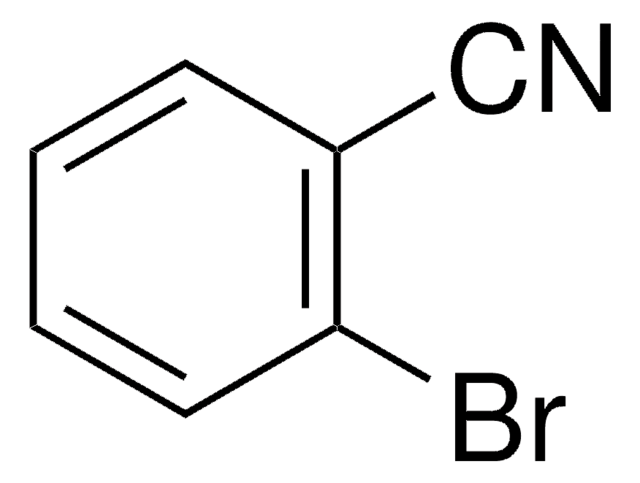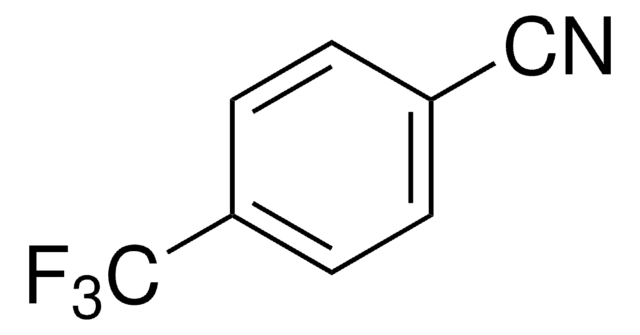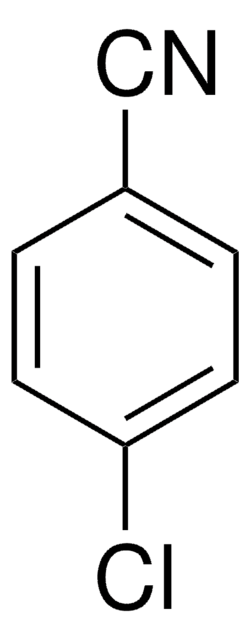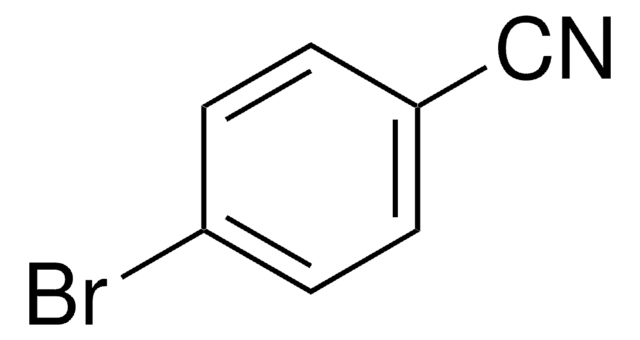All Photos(1)
About This Item
Linear Formula:
FC6H4CN
CAS Number:
Molecular Weight:
121.11
Beilstein:
2042184
EC Number:
MDL number:
UNSPSC Code:
12352100
PubChem Substance ID:
NACRES:
NA.22
Recommended Products
Quality Level
Assay
98%
form
liquid
refractive index
n20/D 1.505 (lit.)
bp
90 °C/21 mmHg (lit.)
density
1.116 g/mL at 25 °C (lit.)
functional group
fluoro
nitrile
SMILES string
Fc1ccccc1C#N
InChI
1S/C7H4FN/c8-7-4-2-1-3-6(7)5-9/h1-4H
InChI key
GDHXJNRAJRCGMX-UHFFFAOYSA-N
Looking for similar products? Visit Product Comparison Guide
General description
2-Fluorobenzonitrile reacts with lithium N,N-dialkylaminoborohydride reagent to yield 2-(N,N-dialkylamino)benzylamines.
Application
2-Fluorobenzonitrile was used in the synthesis of :
- 3-amino-1,2-benzisoxazoles
- 6-(acetylaminomethyl)-3-amino-1,2-benzisoxazole
- 5-(4′-methyl [1, 1′-biphenyl]-2-yl)-1H-tetrazole
- xanthone-iminium triflates
Signal Word
Danger
Hazard Statements
Precautionary Statements
Hazard Classifications
Acute Tox. 4 Oral - Eye Dam. 1 - Skin Irrit. 2 - STOT SE 3
Target Organs
Respiratory system
Storage Class Code
10 - Combustible liquids
WGK
WGK 3
Flash Point(F)
165.2 °F - closed cup
Flash Point(C)
74 °C - closed cup
Personal Protective Equipment
dust mask type N95 (US), Eyeshields, Gloves
Choose from one of the most recent versions:
Already Own This Product?
Find documentation for the products that you have recently purchased in the Document Library.
Customers Also Viewed
H M Colquhoun et al.
Organic letters, 3(15), 2337-2340 (2001-07-21)
[reaction: see text] Condensation of 2-fluorobenzonitriles with phenoxides affords 2-aryloxybenzonitriles that cyclize cleanly in trifluoromethanesulfonic acid at room temperature to give xanthone-iminium triflates. The C=N bond in these compounds is remarkably resistant to hydrolysis, but prolonged reaction with strong aqueous
Edmund J Norris et al.
PLoS neglected tropical diseases, 14(9), e0008365-e0008365 (2020-09-09)
Insecticide resistance poses a significant threat to the control of arthropods that transmit disease agents. Nanoparticle carriers offer exciting opportunities to expand the armamentarium of insecticides available for public health and other pests. Most chemical insecticides are delivered by contact
S Thomas et al.
The Journal of organic chemistry, 66(6), 1999-2004 (2001-04-13)
A novel tandem amination-reduction reaction has been developed in which 2-(N,N-dialkylamino)benzylamines are generated from 2-halobenzonitriles and lithium N,N-dialkylaminoborohydride (LAB) reagents. These reactions are believed to occur through a tandem S(N)Ar amination-reduction mechanism wherein the LAB reagent promotes halide displacement by
Efficient synthesis of 5-(4'-methyl [1, 1'-biphenyl]-2-yl)-1H-tetrazole.
Russell RK and Murray WV.
The Journal of Organic Chemistry, 58(18), 5023-5024 (1993)
S D Lepore et al.
The Journal of organic chemistry, 65(10), 2924-2932 (2000-05-18)
Further exploration of the scope of our solid-phase method for the synthesis of 3-aminobenzisoxazoles (using the Kaiser oxime resin 1) is described. The effects of base, leaving group, and solvent on the nucleophilic aromatic substitution based resin-loading reaction are discussed.
Our team of scientists has experience in all areas of research including Life Science, Material Science, Chemical Synthesis, Chromatography, Analytical and many others.
Contact Technical Service